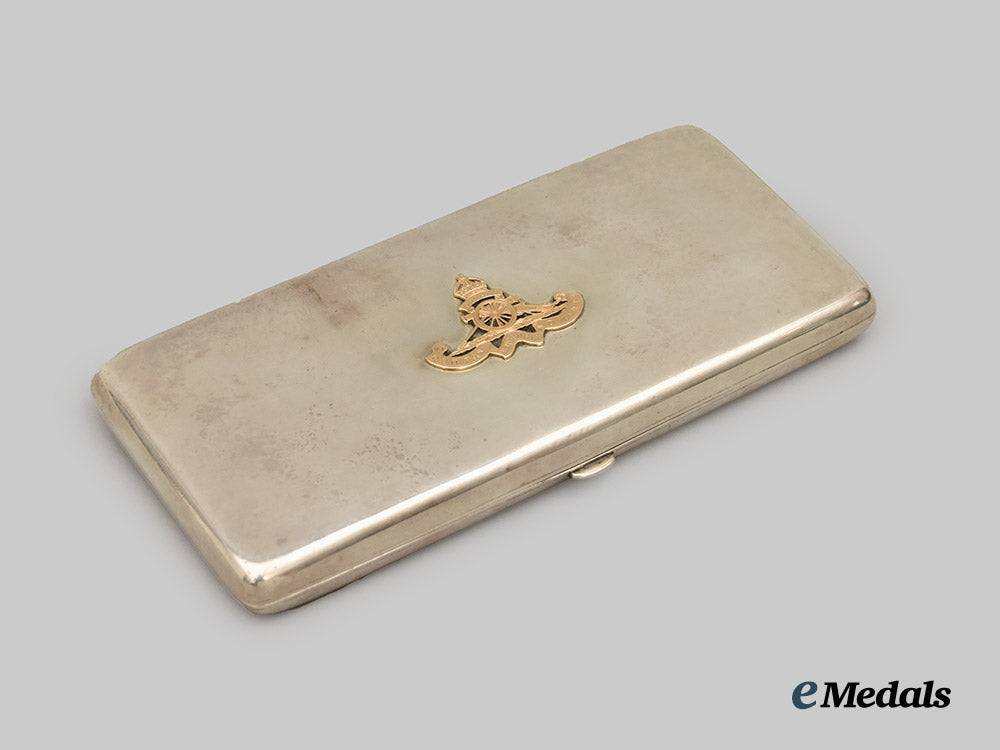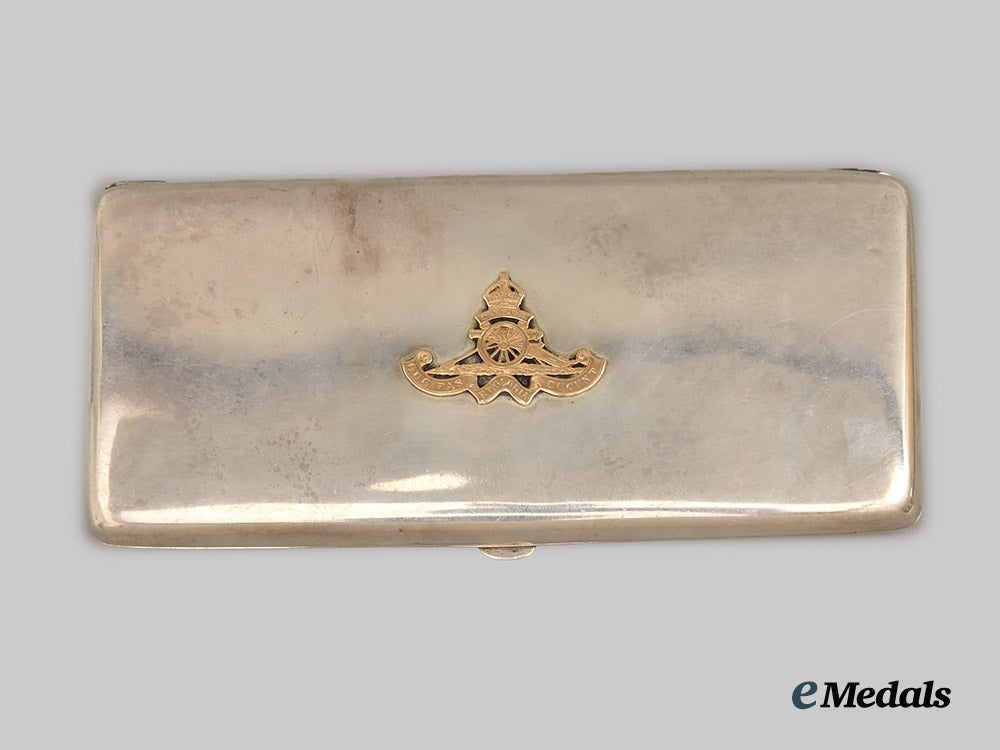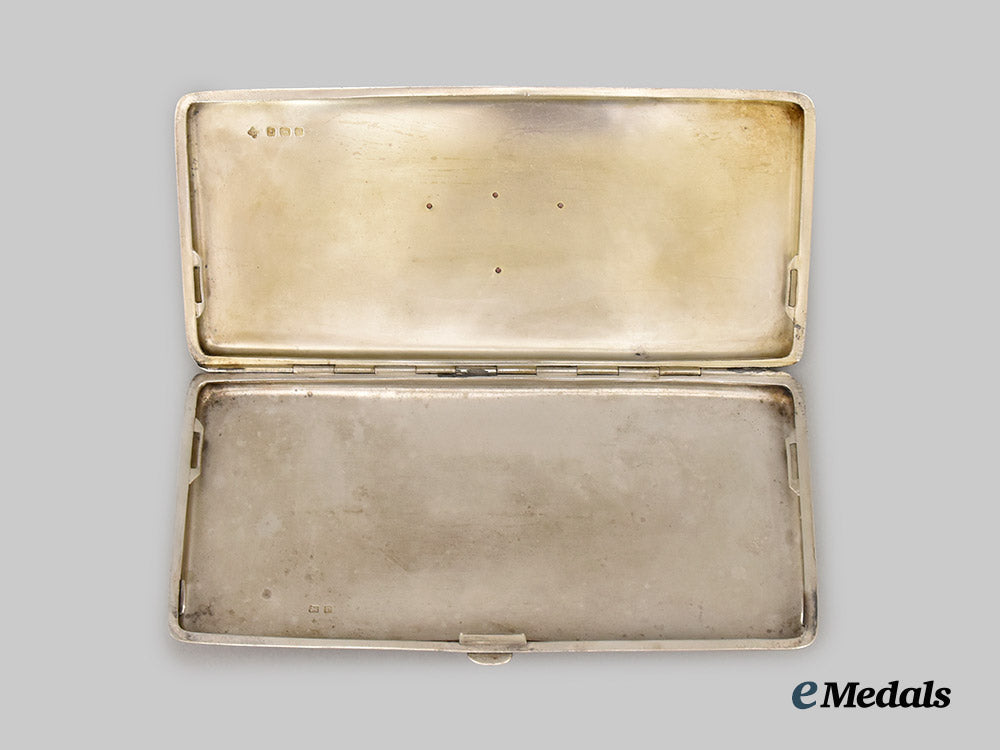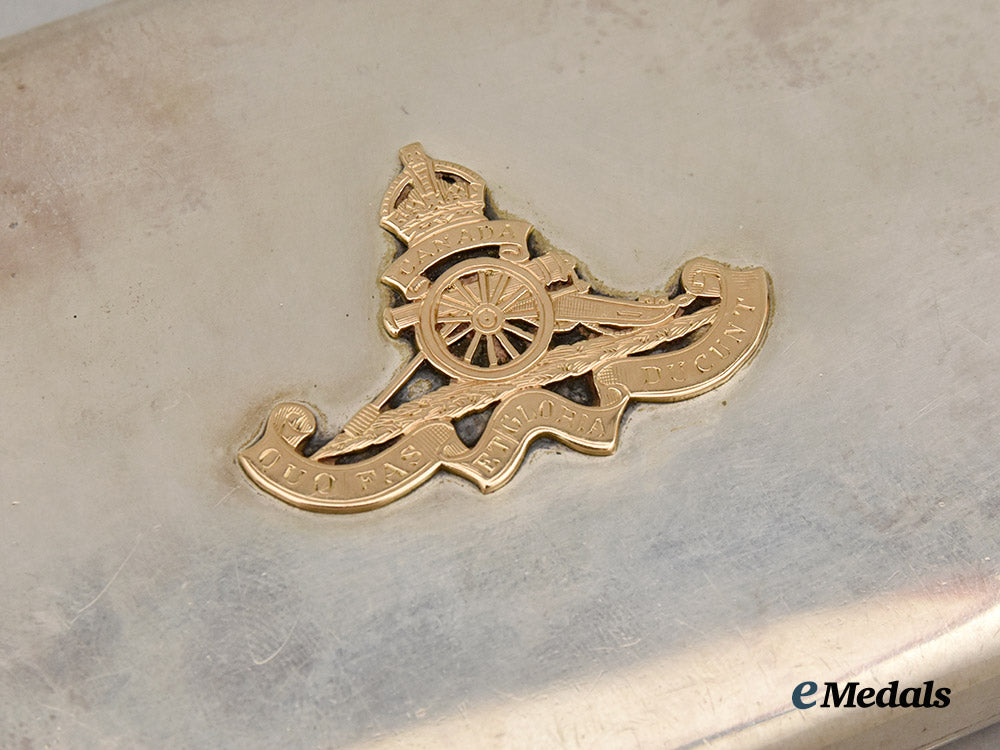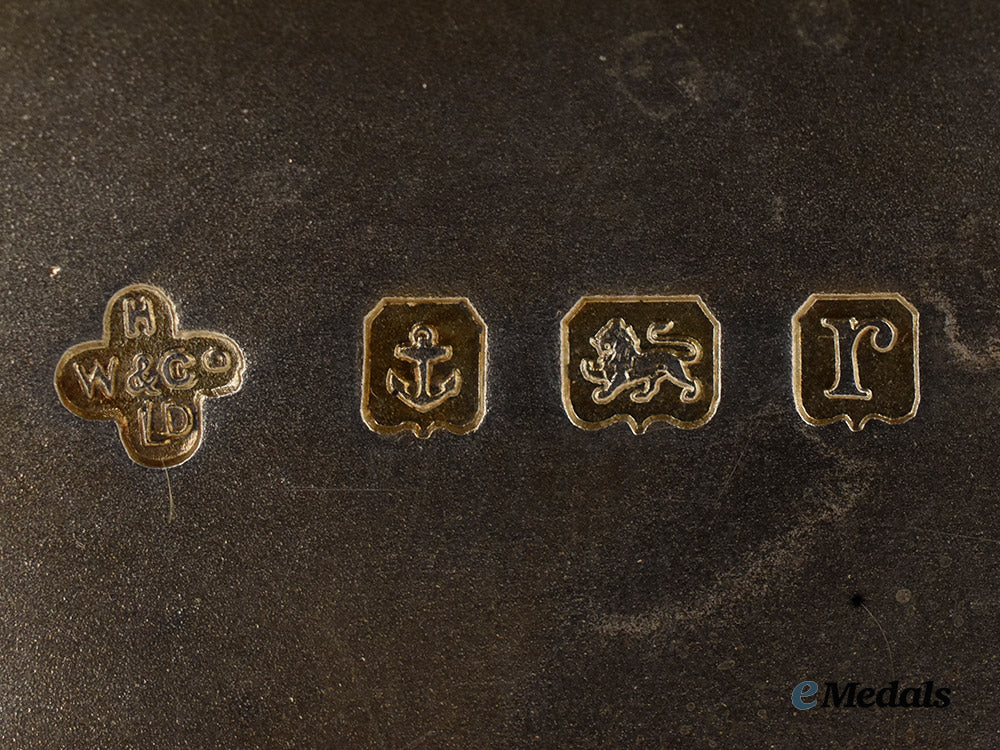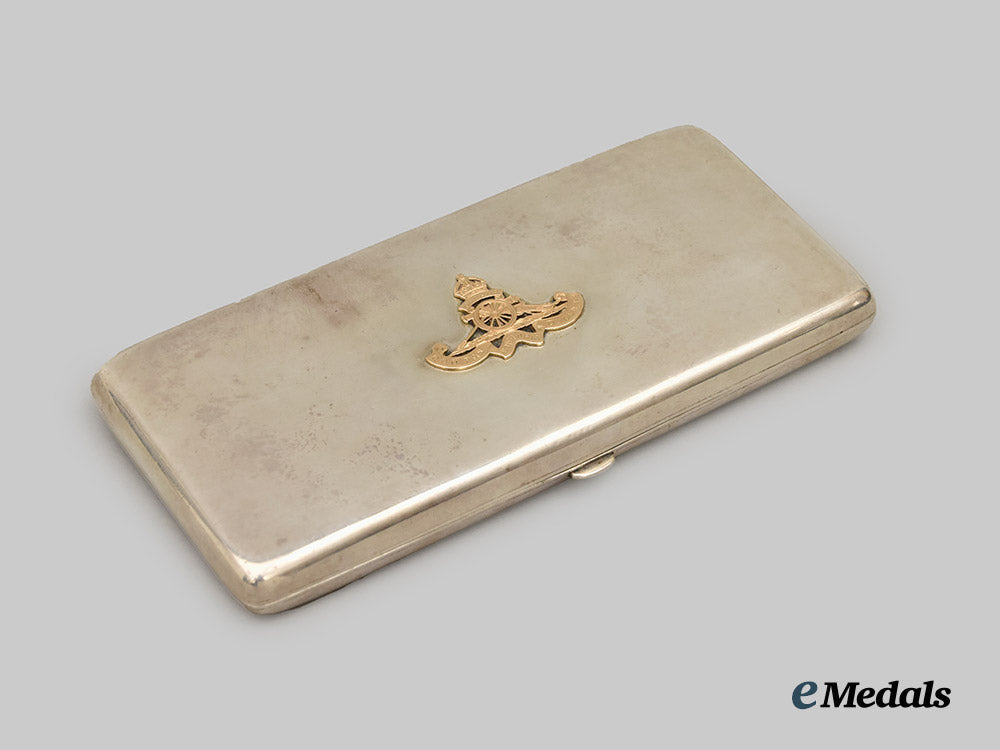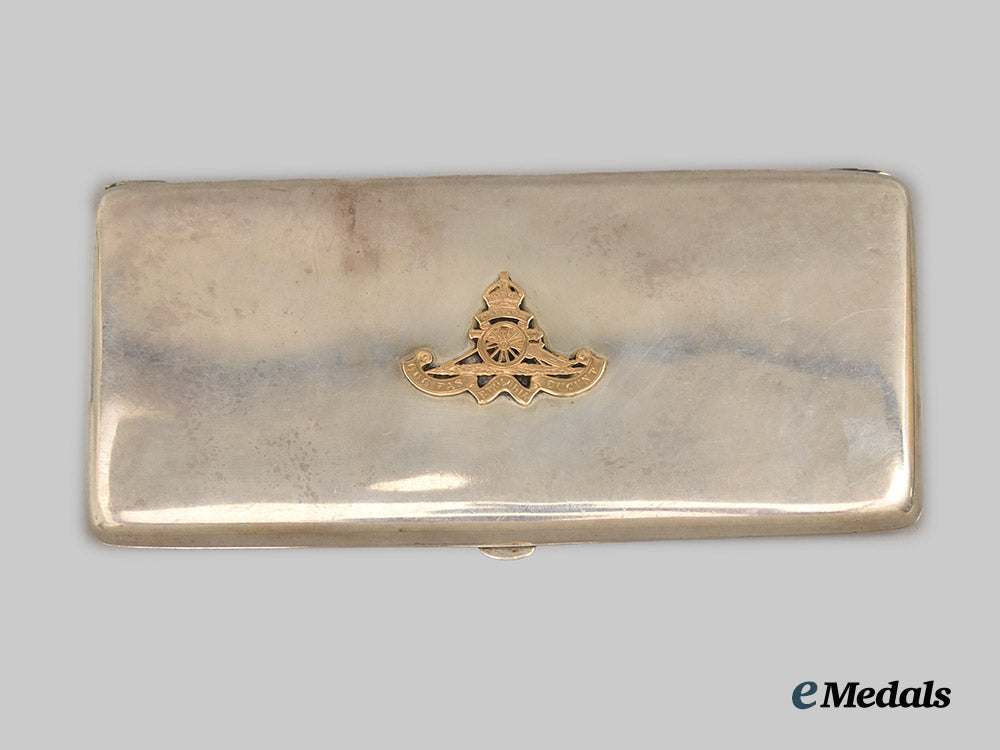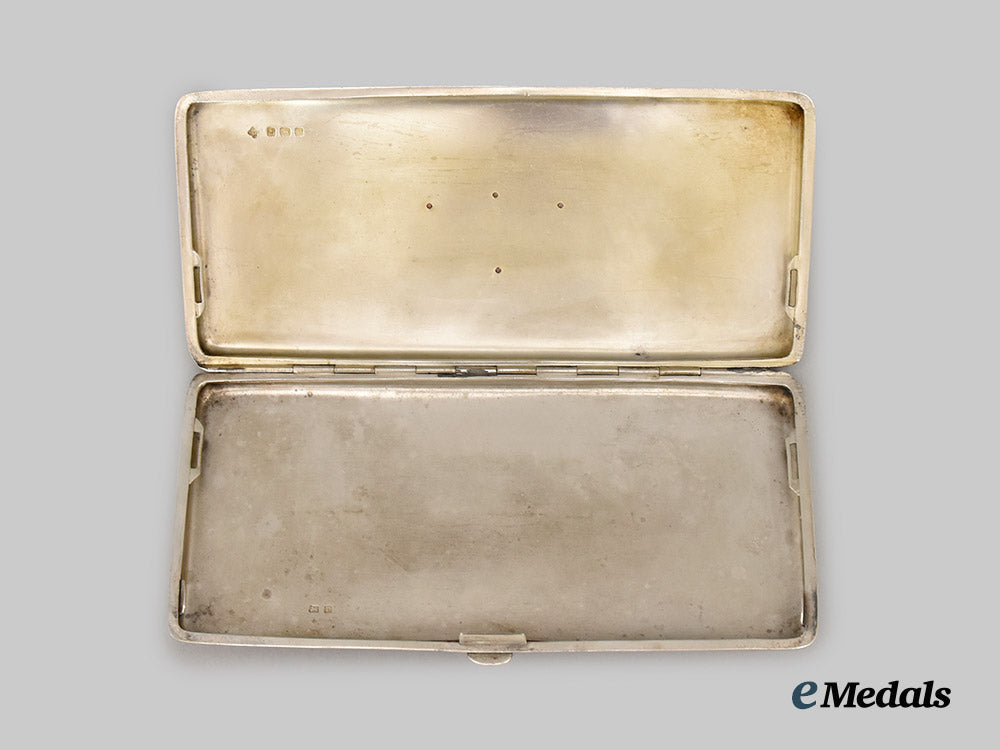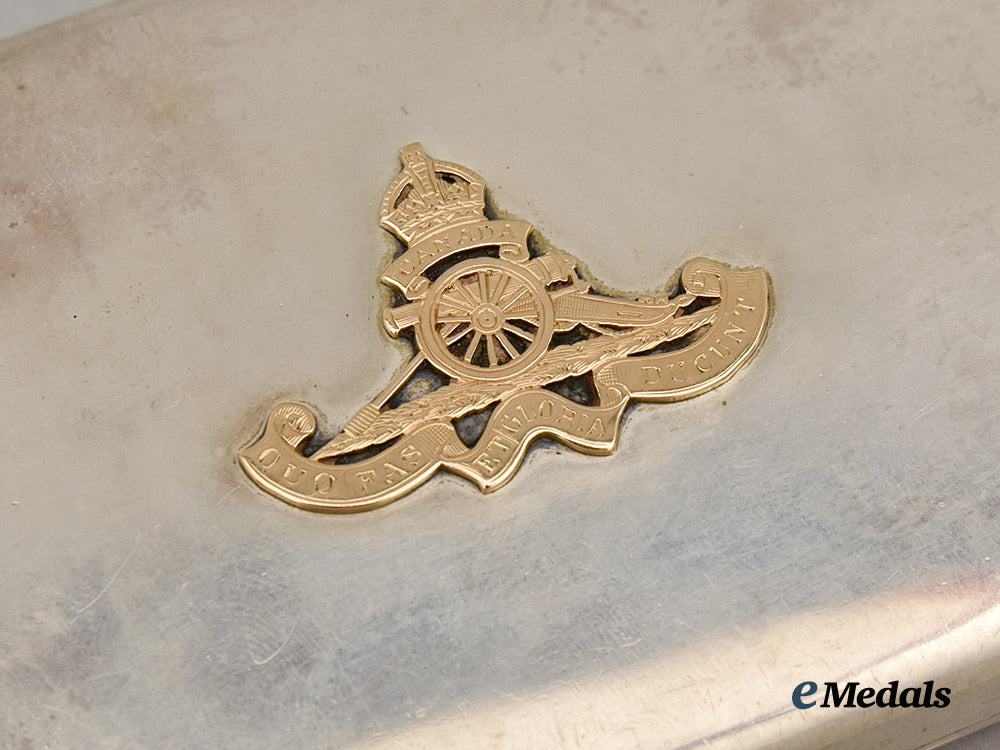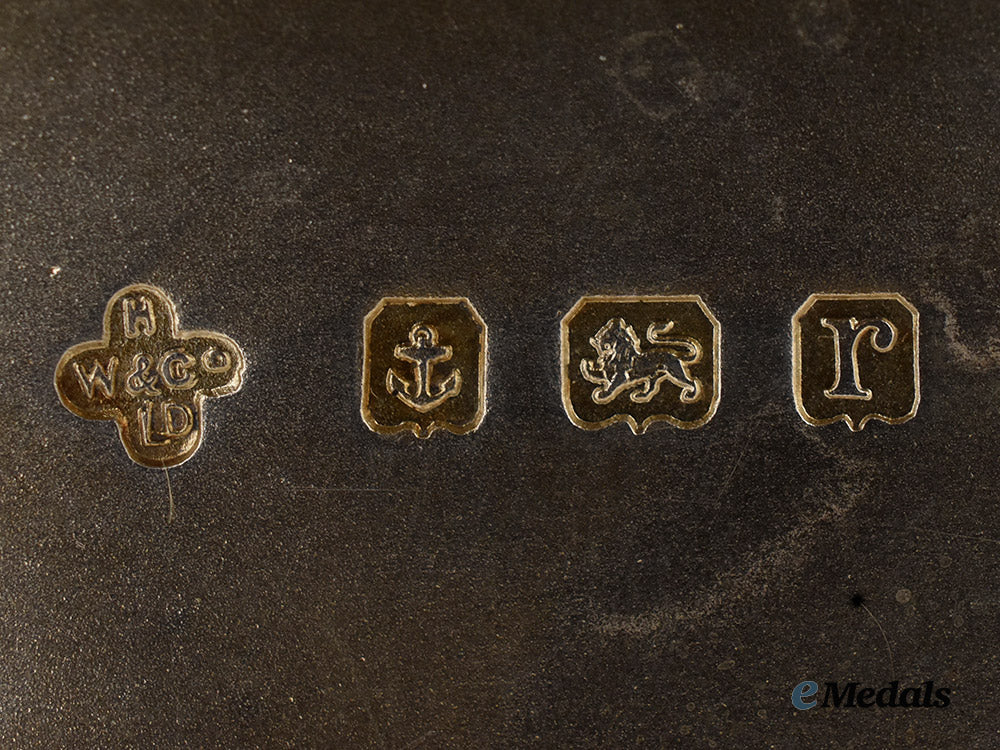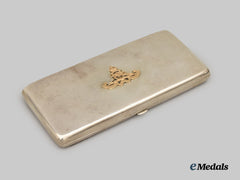
LOADING ...
In response to evolving domestic opinion, eMedals Inc has made the conscious decision to remove the presentation of German Third Reich historical artifacts from our online catalogue. For three decades, eMedals Inc has made an effort to preserve history in all its forms. As historians and researchers, we have managed sensitive articles and materials with the greatest of care and respect for their past and present social context. We acknowledge the growing sentiments put forth by the Canadian public and have taken proactive actions to address this opinion.
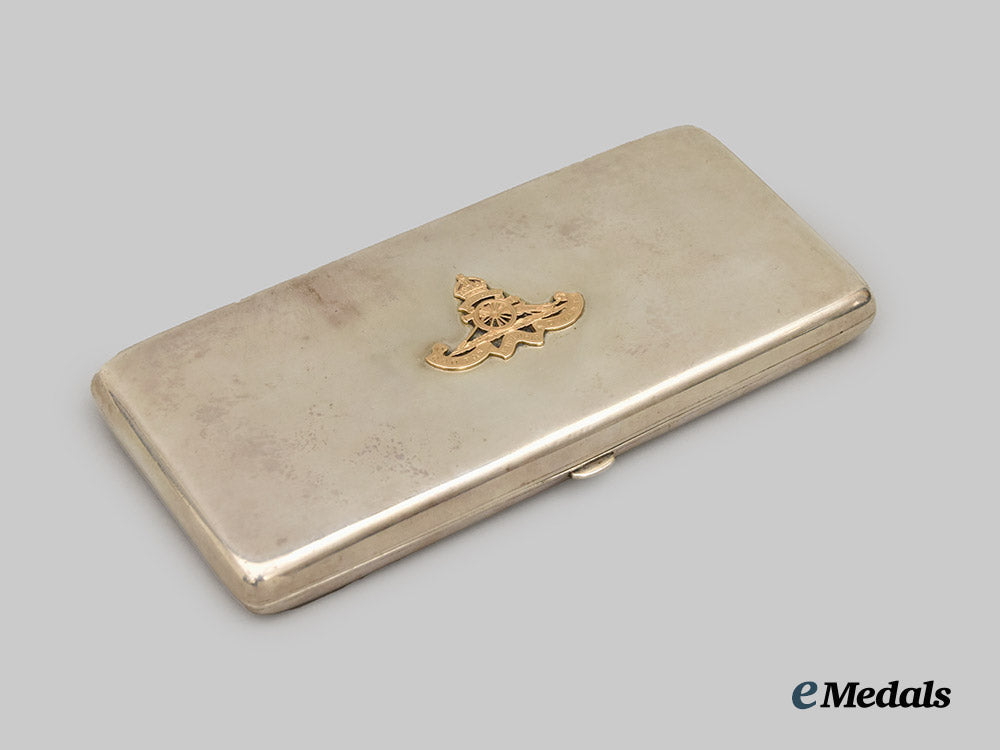
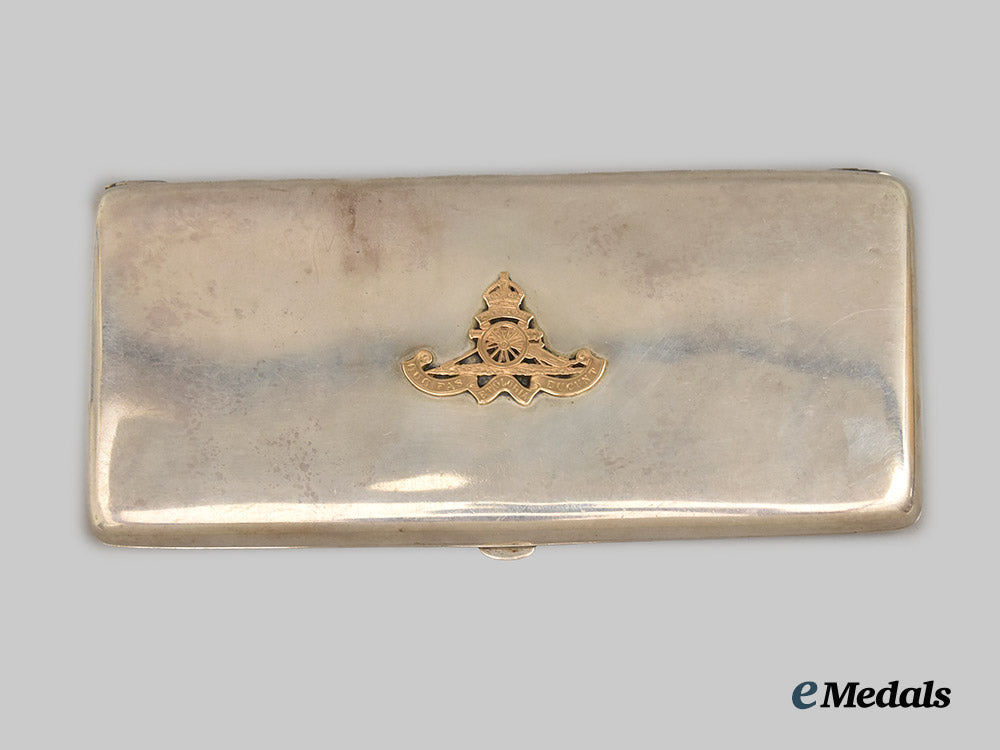
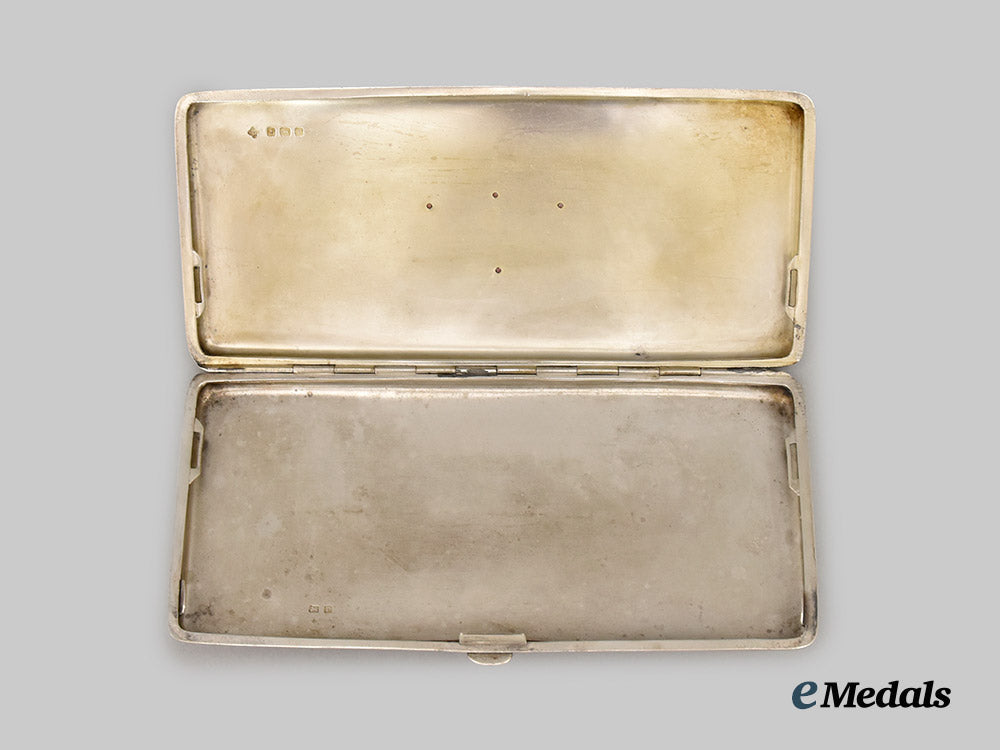
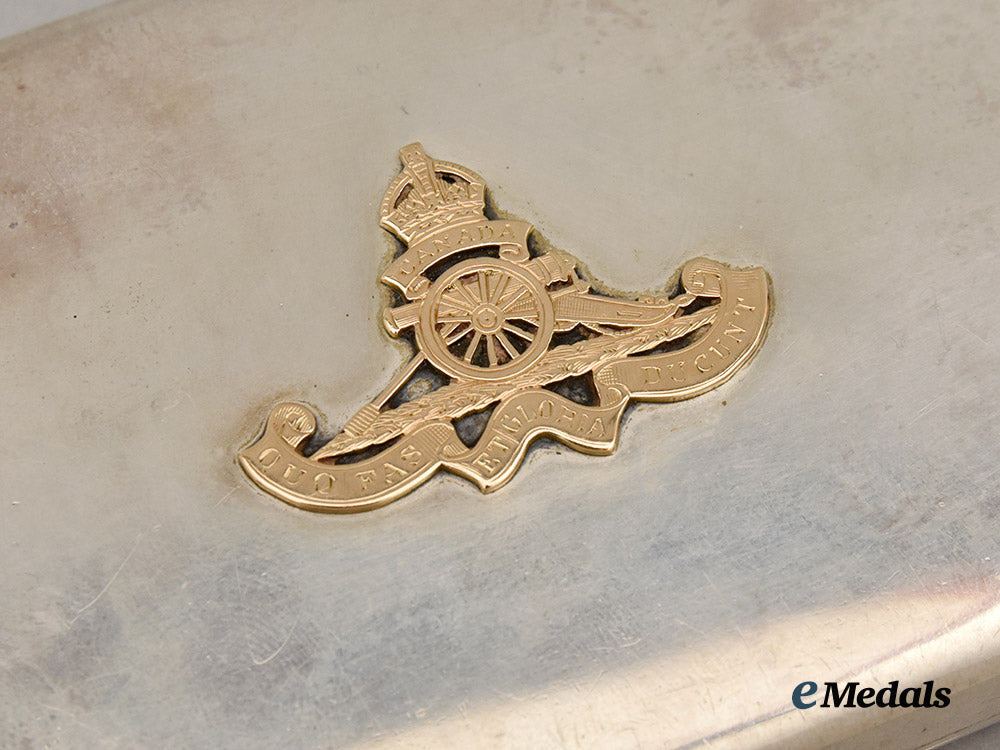
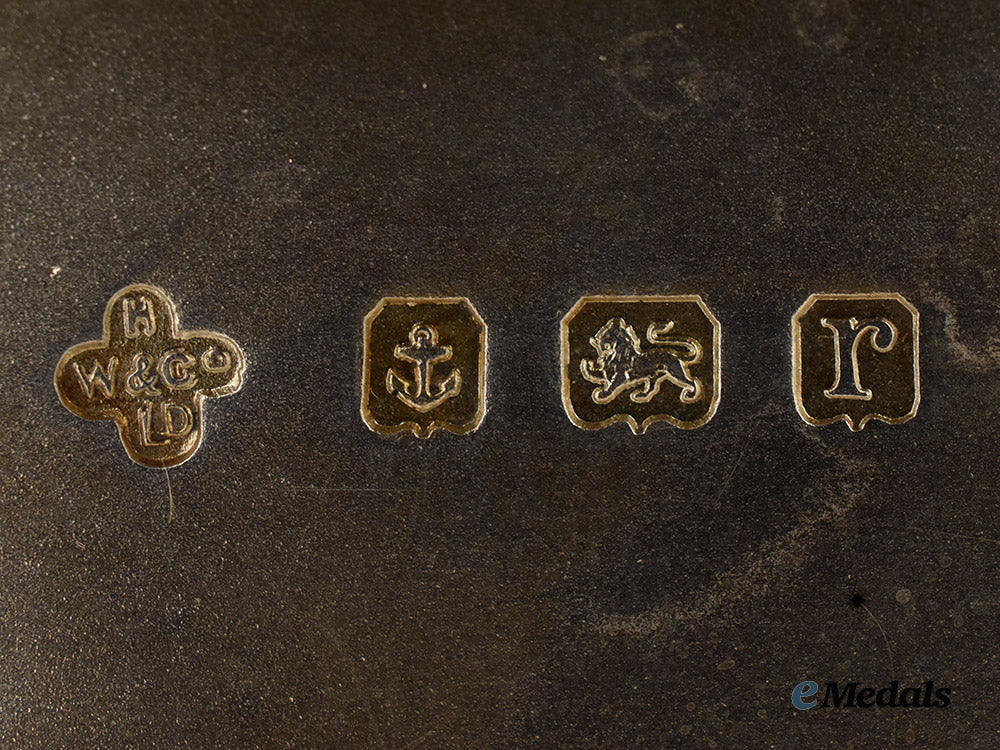
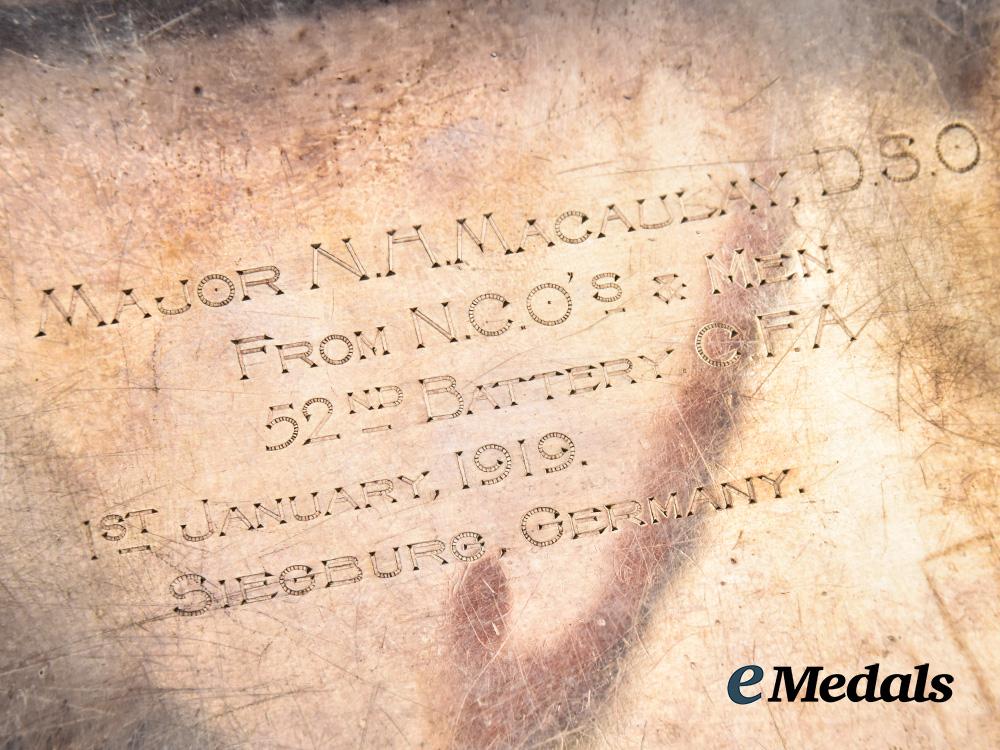
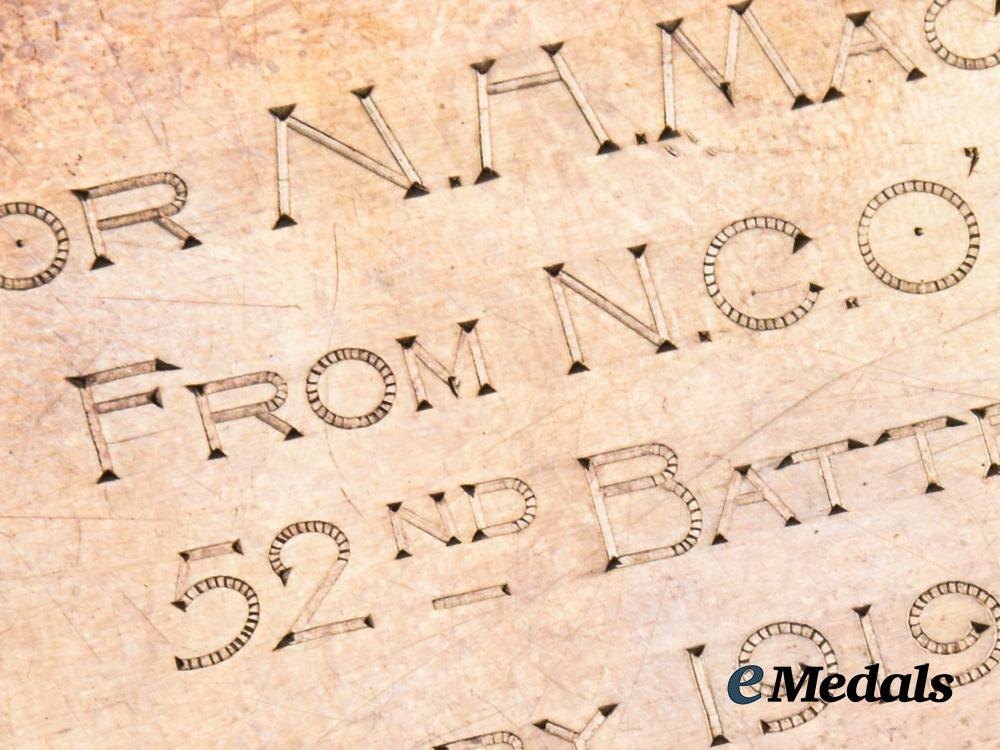
Canada, CEF. A Canadian Field Artillery Officer's Cigarette Case, Named to Major Norman Holliday Macaulay D.S.O.
Canada, CEF. A Canadian Field Artillery Officer's Cigarette Case, Named to Major Norman Holliday Macaulay D.S.O.
SKU: ITEM: C6840
Current Bid:
Your Max Bid:
Bid History:
Time Remaining:
Couldn't load pickup availability
Shipping Details
Shipping Details
eMedals offers rapid domestic and international shipping. Orders received prior to 12:00pm (EST) will be shipped on the same business day.* Orders placed on Canadian Federal holidays will be dispatched the subsequent business day. Courier tracking numbers are provided for all shipments. All items purchased from eMedals can be returned for a full monetary refund or merchandise credit, providing the criteria presented in our Terms & Conditions are met. *Please note that the addition of a COA may impact dispatch time.
Shipping Details
eMedals offers rapid domestic and international shipping. Orders received prior to 12:00pm (EST) will be shipped on the same business day.* Orders placed on Canadian Federal holidays will be dispatched the subsequent business day. Courier tracking numbers are provided for all shipments. All items purchased from eMedals can be returned for a full monetary refund or merchandise credit, providing the criteria presented in our Terms & Conditions are met. *Please note that the addition of a COA may impact dispatch time.
Description
Description
Case in sterling silver with an insignia in Gold placed upon the lid, maker marked "H W & Co Ld" (Horace Woodward and Company Limited of Birmingham), marked with the British lion, an anchor (made in Birmingham) and date marked "r" (1916) on the inside of the lid, engraved Canadian Field Artillery in Gold affixed to the outside of the lid via four pins, engraved "MAJOR N.H. MACAULAY, D.S.O / FROM N.C.O's & MEN / 52nd BATTERY. C.F.A / 1st JANUARY, 1919. / SIEGBERG, GERMANY." on the exterior of the base, both inside lids incorporating integral slots on both sides on the lips where an elastic band to secure the cigarettes once resided, measuring 175 mm in length x 82.3 mm in width x 21 mm in depth, multiple contact marks and scratches evident on the exterior, better than very fine.
Footnote: Norman Holliday Macaulay was born on December 30, 1892 in Indianapolis, Indiana. He was taken on strength on November 13, 1914, appointed to the commissioned rank of Lieutenant, Macaulay enlisted with the 22nd Battery, 6th Brigade, Canadian Field Artillery, signing his Attestation Paper on January 20, 1915 in Kingston, Ontario, at the age of 22, naming his next-of-kin as his veterinary father, Dr. H.R. Macaulay of Guelph, Ontario (a graduate of the Ontario Veterinary College), stating that he had three years training at the Royal Military College in Kingston, that he was with an active militia, that he was not married, that his religion was Church of England and his occupation as that of Gentleman.
After arriving and training in England, Lieutenant Macaulay entered the French theatre on May 14, 1915, where he would serve with the 22nd Battery, 13th Brigade, Canadian Field Artillery. Three months later, he was admitted to No. 3 Casualty Clearing Station on August 21, 1915, suffering from a bout of Influenza and after one week of recovery, he was released to duty on the 28th. The following year, he was promoted to the rank of Captain on April 30, 1916. Seven months after his promotion, Captain Macaulay was admitted to No. 6 Stationary Hospital at Le Havre on November 29, 1916 with Bronchitis and after ten days, he was released to duty on December 8th. He was taken on strength upon the reorganization of the 4th Canadian Field Artillery and posted to the 52nd Battery, along with being named Temporary Major on January 1, 1917, which was followed three weeks later by his promotion to the rank of Major, on January 22, 1917.
Having previously made his way back to England, Major Macaulay re-entered the French theatre at Le Havre on August 21, 1917. He was admitted to No. 34 Field Ambulance on November 18, 1917, suffering from deafness in his left ear, due to gunfire. It was here that he was diagnosed with "Otitis Media Suppurative" (a middle ear inflammation that results in a perforated tympanic membrane with discharge from the ear for more than six weeks), which occured while in active service at Lens, followed by transfer the same day to No. 1 Casualty Clearing Station. Post-war, in his Medical History of an Invalid, dated May 15, 1919 at Witley Camp, Surrey, the attending physician took note of Macaulay's "defective hearing" and in his report, he declared that Macaulay "states that (his) left ear was perfect on enlistment and he attributes the condition to gunfire (November 1917) at Lens, that he was laid up at No. 34 Canadian Field Ambulance and No. 1 Canadian Casualty Station (November 18 to 24, 1917)". After his examination, the physician declared that Major Macaulay "does not require treatment" and that he was "fit for General Service abroad".
Major Macaulay was Mentioned in Despatches twice: the first time in Sir Douglas Haig Despatch of November 7, 1917, while Major Macaulay was with the Canadian Artillery, the announcement appearing in the Second Supplement to the London Gazette 30448 of Tuesday, December 25, 1917, on Friday, December 28, 1917, page 13570; the second time in Sir Douglas Haig Despatch of November 18, 1917, while Major Macaulay with the 13th Brigade, Canadian Field Artillery, the announcement appearing in the Fifth Supplement to the London Gazette 31089 of Friday, December 27, 1918, on Tuesday, December 31, 1918, page 15219. In addition, Major Norman Holliday Macaulay was awarded the Distinguished Service Order, the announcement appearing in the Supplement of the London Gazette 31092 of Tuesday, December 31, 1918, on Wednesday, January 1, 1919, page 21.
Upon the cessation of hostilities, he proceeded to England on May 10, 1919, where he was struck off strength of "J" Wing at the Canadian Corps Camp at Witley, on proceeding to Canada, on June 11, 1919, embarking from Liverpool, England aboard the RMS Scotian the same day. Norman Holliday Macaulay was struck off strength upon general demobilization on June 23, 1919 at Military District No. 2 in Ontario, his Certificate of Service dated at Ottawa on May 6, 1920. He is credited with having served in England and France with the 22nd Battery, 6th Brigade, Canadian Field Artillery, on the General List, with the 52nd Battery, Canadian Field Artillery and with the 2nd Brigade, Canadian Field Artillery, entitled to wear the War Service Badge, Class A. In addition to his Distinguished Service Order, he was awarded the 1914-15 Star, the British War Medal and the Victory Medal. He died on October 20, 1957, at the age of 64.
Description
Case in sterling silver with an insignia in Gold placed upon the lid, maker marked "H W & Co Ld" (Horace Woodward and Company Limited of Birmingham), marked with the British lion, an anchor (made in Birmingham) and date marked "r" (1916) on the inside of the lid, engraved Canadian Field Artillery in Gold affixed to the outside of the lid via four pins, engraved "MAJOR N.H. MACAULAY, D.S.O / FROM N.C.O's & MEN / 52nd BATTERY. C.F.A / 1st JANUARY, 1919. / SIEGBERG, GERMANY." on the exterior of the base, both inside lids incorporating integral slots on both sides on the lips where an elastic band to secure the cigarettes once resided, measuring 175 mm in length x 82.3 mm in width x 21 mm in depth, multiple contact marks and scratches evident on the exterior, better than very fine.
Footnote: Norman Holliday Macaulay was born on December 30, 1892 in Indianapolis, Indiana. He was taken on strength on November 13, 1914, appointed to the commissioned rank of Lieutenant, Macaulay enlisted with the 22nd Battery, 6th Brigade, Canadian Field Artillery, signing his Attestation Paper on January 20, 1915 in Kingston, Ontario, at the age of 22, naming his next-of-kin as his veterinary father, Dr. H.R. Macaulay of Guelph, Ontario (a graduate of the Ontario Veterinary College), stating that he had three years training at the Royal Military College in Kingston, that he was with an active militia, that he was not married, that his religion was Church of England and his occupation as that of Gentleman.
After arriving and training in England, Lieutenant Macaulay entered the French theatre on May 14, 1915, where he would serve with the 22nd Battery, 13th Brigade, Canadian Field Artillery. Three months later, he was admitted to No. 3 Casualty Clearing Station on August 21, 1915, suffering from a bout of Influenza and after one week of recovery, he was released to duty on the 28th. The following year, he was promoted to the rank of Captain on April 30, 1916. Seven months after his promotion, Captain Macaulay was admitted to No. 6 Stationary Hospital at Le Havre on November 29, 1916 with Bronchitis and after ten days, he was released to duty on December 8th. He was taken on strength upon the reorganization of the 4th Canadian Field Artillery and posted to the 52nd Battery, along with being named Temporary Major on January 1, 1917, which was followed three weeks later by his promotion to the rank of Major, on January 22, 1917.
Having previously made his way back to England, Major Macaulay re-entered the French theatre at Le Havre on August 21, 1917. He was admitted to No. 34 Field Ambulance on November 18, 1917, suffering from deafness in his left ear, due to gunfire. It was here that he was diagnosed with "Otitis Media Suppurative" (a middle ear inflammation that results in a perforated tympanic membrane with discharge from the ear for more than six weeks), which occured while in active service at Lens, followed by transfer the same day to No. 1 Casualty Clearing Station. Post-war, in his Medical History of an Invalid, dated May 15, 1919 at Witley Camp, Surrey, the attending physician took note of Macaulay's "defective hearing" and in his report, he declared that Macaulay "states that (his) left ear was perfect on enlistment and he attributes the condition to gunfire (November 1917) at Lens, that he was laid up at No. 34 Canadian Field Ambulance and No. 1 Canadian Casualty Station (November 18 to 24, 1917)". After his examination, the physician declared that Major Macaulay "does not require treatment" and that he was "fit for General Service abroad".
Major Macaulay was Mentioned in Despatches twice: the first time in Sir Douglas Haig Despatch of November 7, 1917, while Major Macaulay was with the Canadian Artillery, the announcement appearing in the Second Supplement to the London Gazette 30448 of Tuesday, December 25, 1917, on Friday, December 28, 1917, page 13570; the second time in Sir Douglas Haig Despatch of November 18, 1917, while Major Macaulay with the 13th Brigade, Canadian Field Artillery, the announcement appearing in the Fifth Supplement to the London Gazette 31089 of Friday, December 27, 1918, on Tuesday, December 31, 1918, page 15219. In addition, Major Norman Holliday Macaulay was awarded the Distinguished Service Order, the announcement appearing in the Supplement of the London Gazette 31092 of Tuesday, December 31, 1918, on Wednesday, January 1, 1919, page 21.
Upon the cessation of hostilities, he proceeded to England on May 10, 1919, where he was struck off strength of "J" Wing at the Canadian Corps Camp at Witley, on proceeding to Canada, on June 11, 1919, embarking from Liverpool, England aboard the RMS Scotian the same day. Norman Holliday Macaulay was struck off strength upon general demobilization on June 23, 1919 at Military District No. 2 in Ontario, his Certificate of Service dated at Ottawa on May 6, 1920. He is credited with having served in England and France with the 22nd Battery, 6th Brigade, Canadian Field Artillery, on the General List, with the 52nd Battery, Canadian Field Artillery and with the 2nd Brigade, Canadian Field Artillery, entitled to wear the War Service Badge, Class A. In addition to his Distinguished Service Order, he was awarded the 1914-15 Star, the British War Medal and the Victory Medal. He died on October 20, 1957, at the age of 64.
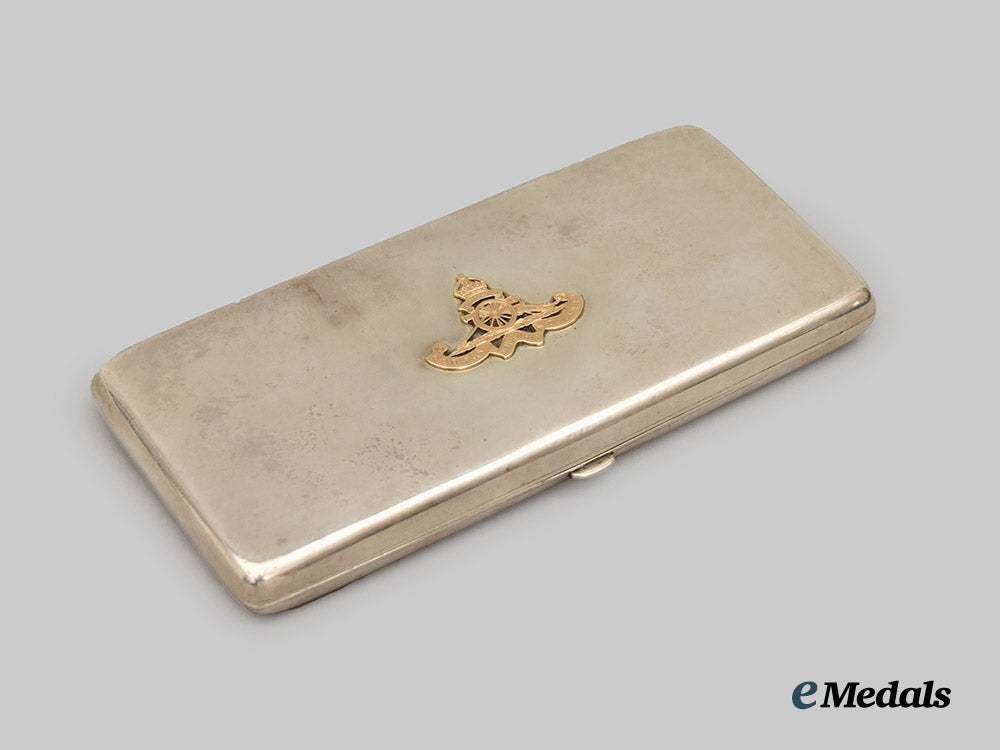
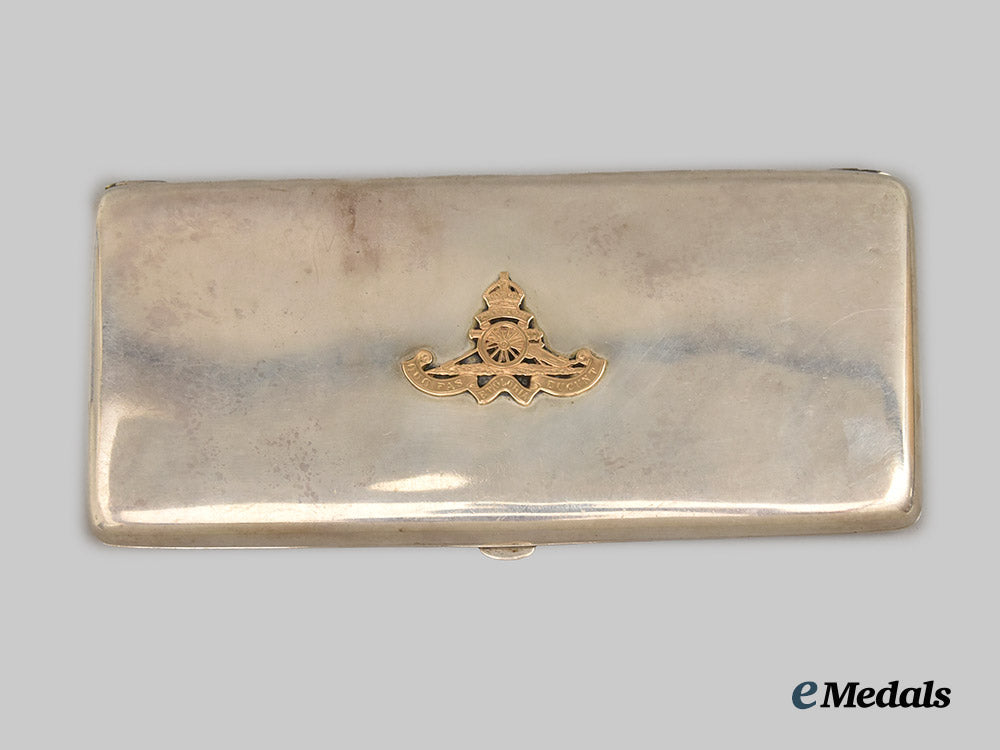
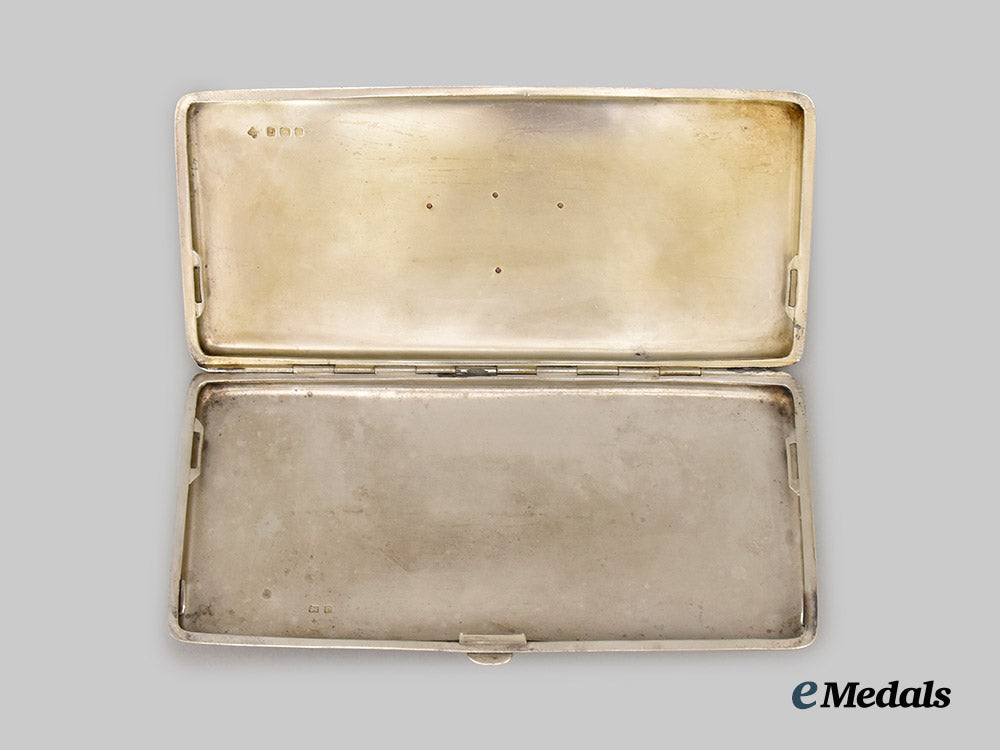
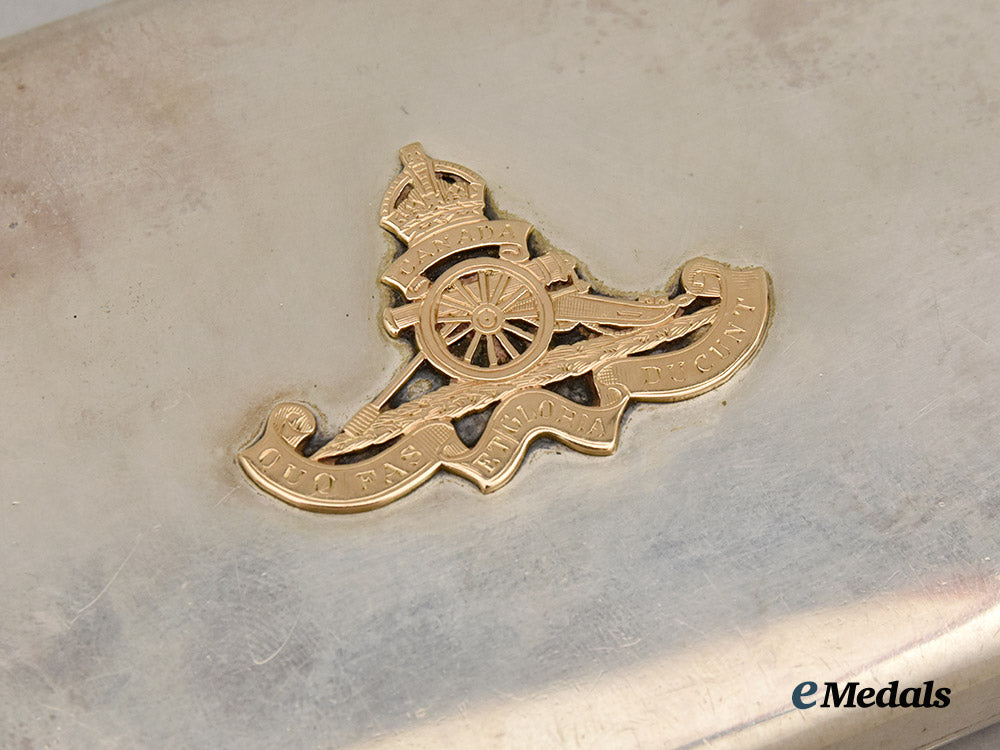
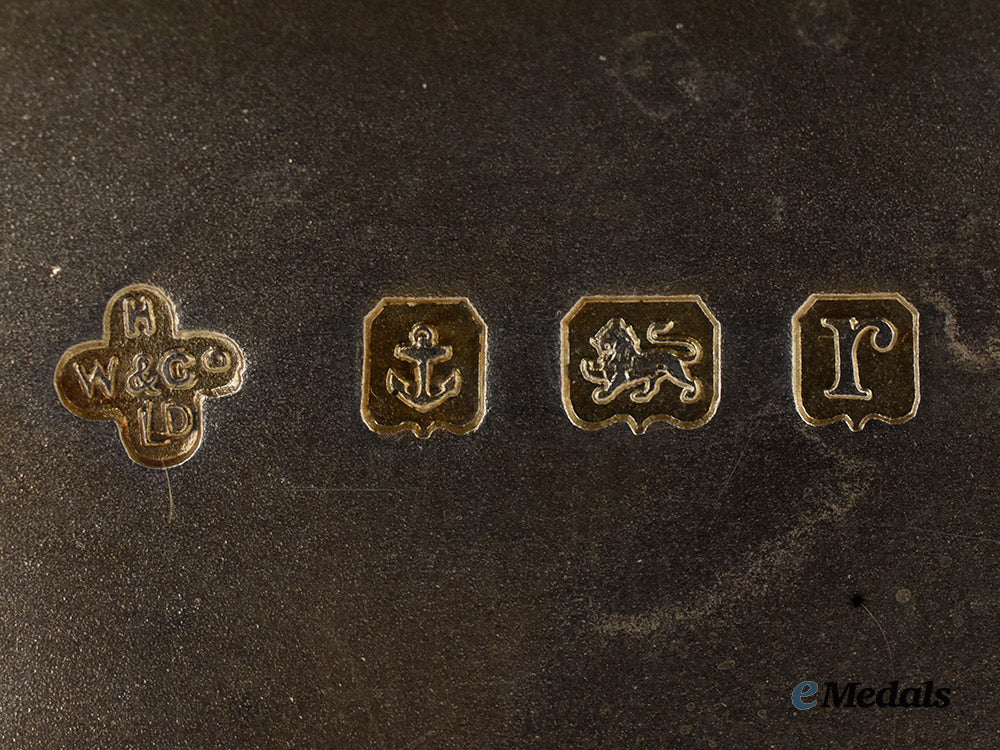
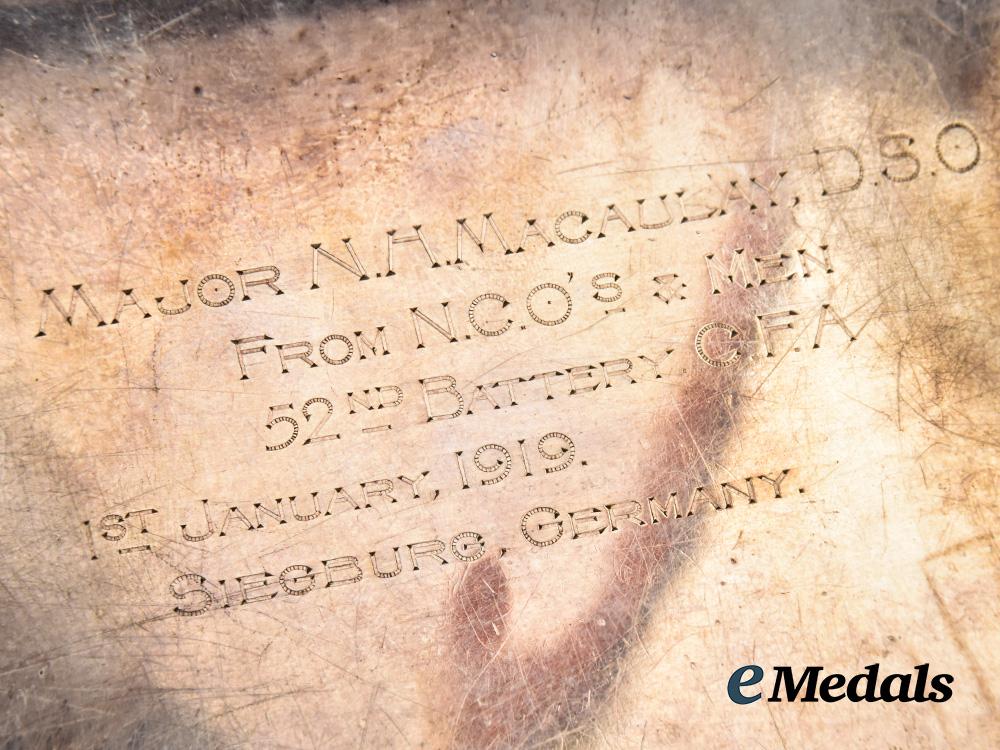
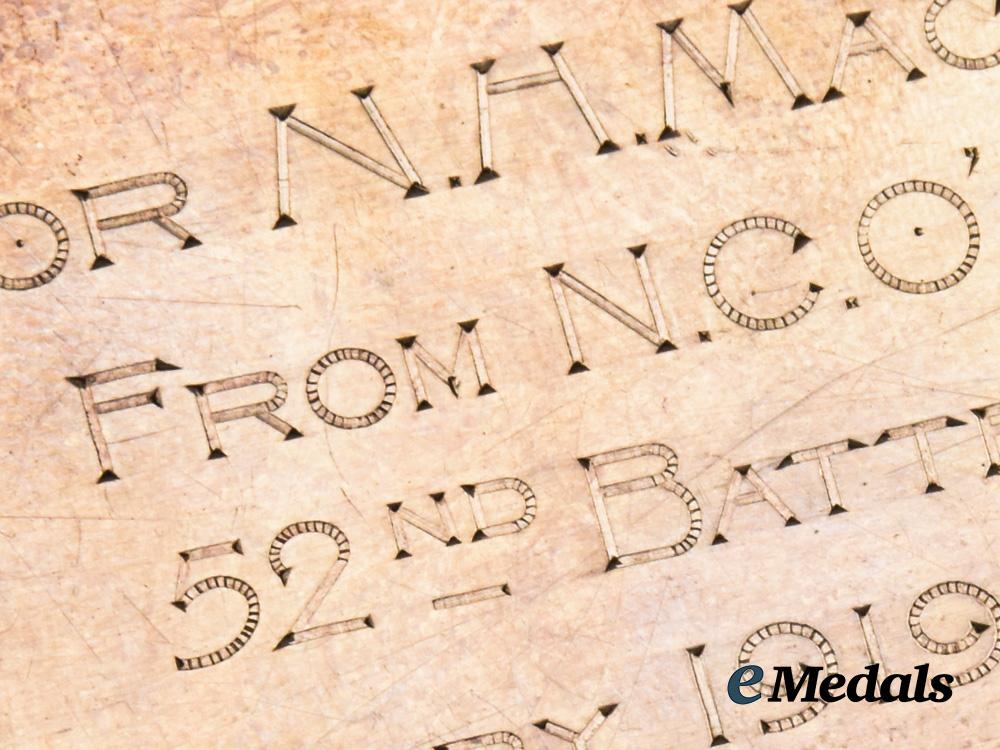
You May Also Like
Germany, Third Reich. A Mixed Lot of Uniform Insignia
G59693
Germany, SS. A Set of Waffen-SS Legal Service Obersturmführer Shoulder Boards
G59692
Germany, Wehrmacht. A Spanish Cross in Gold, Exhibition Example by Rudolf Souval, c. 1960
G59688
Germany, Third Reich. An Order of the German Eagle, II Class Breast Star, by Gebrüder Godet
G59687
Slovakia, First Republic. A Rare and Mint Freiwillige Schutzstaffel Cap Insignia, Third Pattern, German-Made by Augustin Hicke
EU23583
-
Germany, Third Reich. A Mixed Lot of Uniform Insignia
G59693
Add to CartRegular price $225 USDRegular price $0 USD Sale price $225 USDUnit price / per -
Germany, SS. A Set of Waffen-SS Legal Service Obersturmführer Shoulder Boards
G59692
Add to CartRegular price $485 USDRegular price $0 USD Sale price $485 USDUnit price / per -
Germany, Wehrmacht. A Spanish Cross in Gold, Exhibition Example by Rudolf Souval, c. 1960
G59688
Add to CartRegular price $650 USDRegular price $0 USD Sale price $650 USDUnit price / per -
Germany, Third Reich. An Order of the German Eagle, II Class Breast Star, by Gebrüder Godet
G59687
Add to CartRegular price $2,650 USDRegular price $0 USD Sale price $2,650 USDUnit price / per -
Slovakia, First Republic. A Rare and Mint Freiwillige Schutzstaffel Cap Insignia, Third Pattern, German-Made by Augustin Hicke
EU23583
Add to CartRegular price $2,450 USDRegular price $0 USD Sale price $2,450 USDUnit price / per
Do you have a similar item you are interested in selling?
Please complete the form and our client care representatives will contact you.
Sell Item